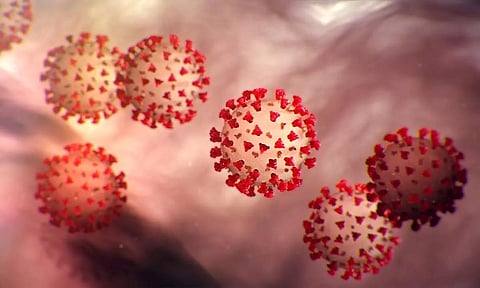
- Home
- Live Blog
- Breaking News
- Top Headlines
- Cities
- NE News
- Sentinel Media
- Sports
- Education
- Jobs

A new research has found that the coronavirus tends to survive longer on nonporous or smooth surfaces, compared to porous complex surfaces, such as cotton.
The scientist at the Australian Centre for Disease Preparedness showed that SARS-CoV-2 is "extremely robust''. The deadly virus is likely to survive for 28 days on smooth surfaces like glass found on mobile phone screens and plastic banknotes at room temperature, or 20 degrees Celsius (68 degrees Fahrenheit).
The findings of the scientists also add to evidence that COVID-19 survives longer in cooler weather making it difficult to control during winter than the summer season. According to the scientists, the research helps to accurately predict and reduce the pandemic's spread.
In an email statement by Debbie Eagles, the Centre's Deputy Director said, ''Our results show that SARS-CoV-2 remains infectious on surfaces for a longer time making it an essential to regularly wash hands and cleaning surfaces''.
The coronavirus is transmitted mostly through direct contact with an infected person, especially when they emit virus-laden particles like coughing, sneezing, speaking, singing, and even breathing. It may also contaminate surfaces when these particles settle, creating so-called fomites that the researchers said '' may also be an important contributor in the transmission of the virus''.
Although not scientifically proven, researchers at Kansas State University in its study released ahead of publication and peer review in August said that SARS-CoV-2 spread via fomites is plausible.